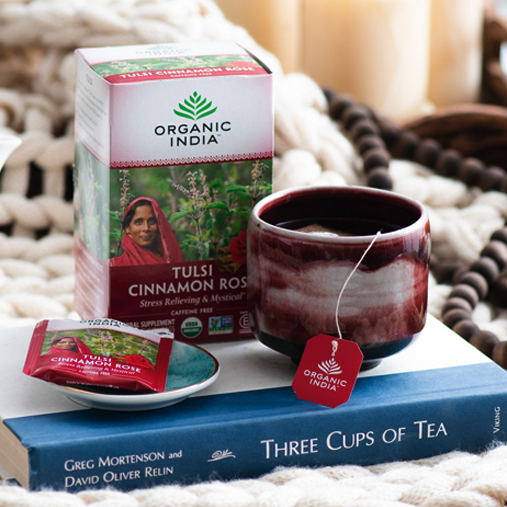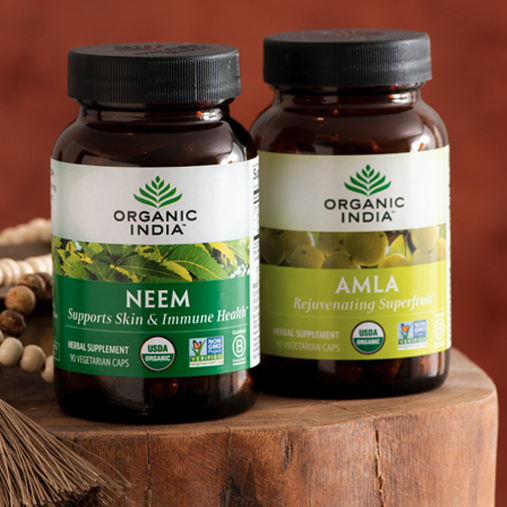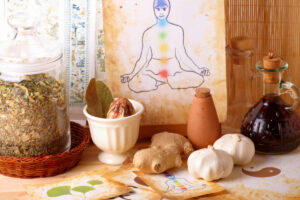Back
Mood is the stuff of songs, poetry, and lore. And there are plenty of moods sandwiched in between good and bad. There are moods that make you amorous, ambitious, curious, reflective, artistically expressive, sad, playful, serious, and sociable. A nice hot shower can put you in the mood to sing, and standing in a peaceful creek can provide just the right mood to inspire your next novel.
A mood is a temporary state of mind or feeling. We are all heir to changing moods — some are said to be more moody than others, while some are even-tempered. While we may pray for pilots, presidents, doctors, and chefs to be of the latter group, the truth is that we are all subject to emotional shifts. And even though most of us want to be in a good mood, circumstances, people, the environment, and psychological conditioning often get in the way. What’s a brain to do?
Food Choices Affect Mood
Psychologist Maria A. Polak, University of Otago – New Zealand suggests that a daily dose of healthy fruits and vegetables in the diet, as well as dietary patterns, have the power to create positive mood changes. Specific micronutrients, like iron, vitamin D, folate, selenium, magnesium, and others, are associated with a lowered incidence of depression. When you eat more fruits and vegetables, you create more positive moods and greater life satisfaction, as well as increased vigor. But none of this is news to Ayurvedic healthcare, which has been around for thousands of years.
The stronger our ability to cope and withstand stressors, the less likely our moods will fluctuate between highs and lows.
Ayurveda is famous for its mood-enhancing herbs, which is good news in today’s world, where too many people seem to be stressed-out, depressed, anxious, and even in a state of inertia. But before discussing herbs that balance out the mood, a little talk about doshas is in order.
Diving Into Doshas
Vata, Pitta, and Kapha — the three main doshas — are Ayurveda’s regulatory principles of the mind, body, and behavior. These doshas are applied not only to the body, but to all expressions of life — from body types to weather conditions. When any of these doshas are out of balance, there is greater disorder; and what modern medicine calls a symptom or a disease, the Ayurvedic practitioner recognizes as imbalances.
The doshas determine how we feel, how our bodies respond to the elements, that which our dispositions gravitate toward, and our propensities to fall into certain moods, among many other interesting things.
Frederick Travis and Robert Keith Wallace, Center for Brain, Consciousness and Cognition, Maharishi University of Management – Iowa, have reported a growing body of research that reveals patterns of blood chemistry, genetic expression, physiological states, and chronic diseases associated with each dosha type. Travis and Wallace suggest that the Vata brain-type performs activities quickly, learns fast, forgets easily, and provides an edge when it comes to creative problem-solving.
The Pitta brain-type reacts strongly to challenges leading to purposeful and resolute actions, doesn’t surrender very easily, and is goal-oriented. The Kapha brain-type is slow and steady, which is ideal for methodical thinking and action. The researchers report that a model of dosha brain-types could provide a physiological foundation for understanding individual differences, possibly explaining differences in behavior from person to person. One of the biggest factors that creates unwanted mood changes is stress.
Josh Greene, California College of Ayurveda, wrote that the stronger our ability to cope and withstand stressors, the less likely our moods will fluctuate between highs and lows. This has to do with Ojas, one of the three subtle forces in the body that determines our sense of satisfaction with life. When Ojas is strong, wrote Greene, we are less likely to be adversely affected by way of imbalanced doshas.
Four Herbs to Soothe Moods
Moods are related to emotions, which are related to the mind, which is related to the brain. Therefore, Ayurvedic herbs that support brain health create a greater sense of happiness, fulfillment, patience, peace, better concentration, and clarity.
It’s no secret that stress affects mood, and unfortunately, stress is so common in today’s world that few of us are unaffected by bouts of anxiety, depression, sadness, grief, worry, seasonal mood swings, and/or frustration. On the other hand, there are a few great and time-tested Ayurvedic mood-enhancers that help all dosha types.
- Bacopa: Ayurveda practitioner Dr. Dhanvantri Tyagi places Bacopa at the top of his list. This herb is well-known for reducing stress via decreasing cortisol, the stress hormone. Bacopa also enhances concentration and revitalizes brain cells. Ayurvedic practitioner Kathryn Templeton adds that Bacopa helps the nervous system withstand emotional stress, improves the capacity to focus, and supports the mind’s ability to learn and remember.
- Ashwaghanda: Dr. Tyagi also recommends Ashwagandha, a leading adaptogenic (stress-alleviating) herb that boosts energy and increases mental endurance. Ashwagandha also promotes a good night’s sleep and balances the energies and doshas of the body.
- Gotu Kola: Another great herb to lift your mood is Gotu Kola, a plant that researchers say is helpful in fighting depression. Gotu Kola can also help you get a better night’s sleep and lessen feelings of anxiety.
- Peppermint: There’s an Ayurvedic herb that’s impossible to miss once it’s right under your nose — Pudina, better known as peppermint. Peppermint has been used for centuries for frayed nerves, agitation, anxiety, and an upset stomach. The fact that it is used as a sleep aid makes peppermint tea a great drink to imbibe, with the hopes of waking up to a brighter day.
Other Great Mood Movers
Good mood comes from balance. This is the key to all aspects of Ayurveda. Life is a whole, flowing movement — when the body, mind, emotions, environment, or spirit is out of kilter, it affects how you feel about the world. Better moods can be created not only with Ayurvedic herbs, but in myriad other ways, including music, dance, meditation, yoga, laughter, exercise, hobbies, massage, oil treatments, and spending quality time with those who uplift your spirits.















